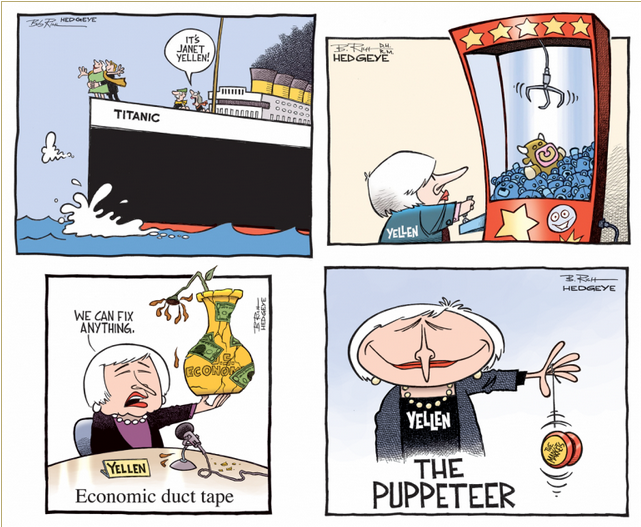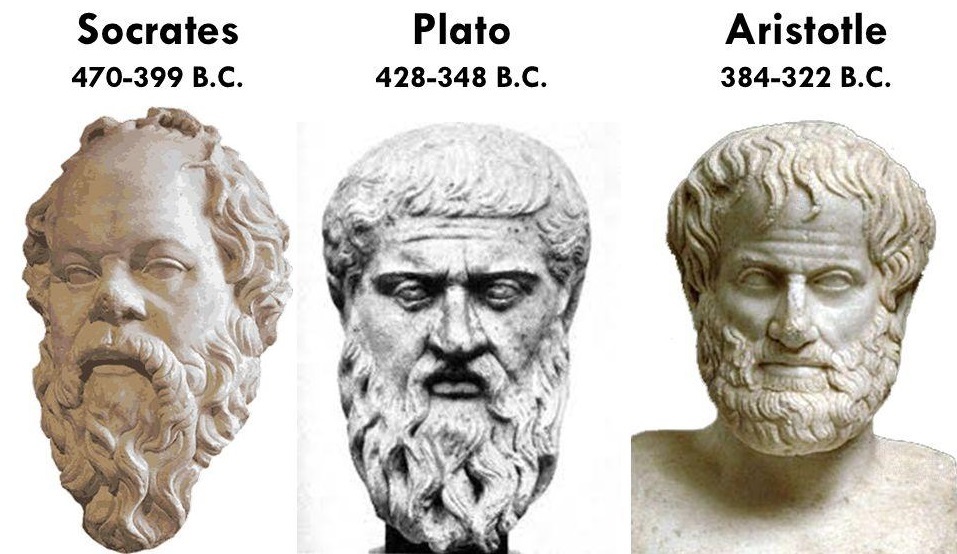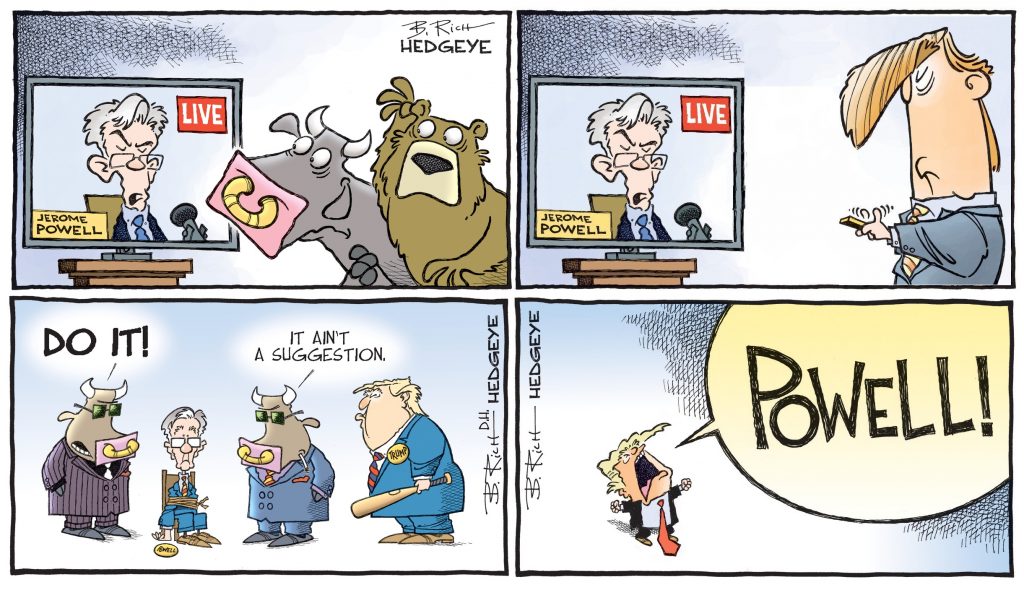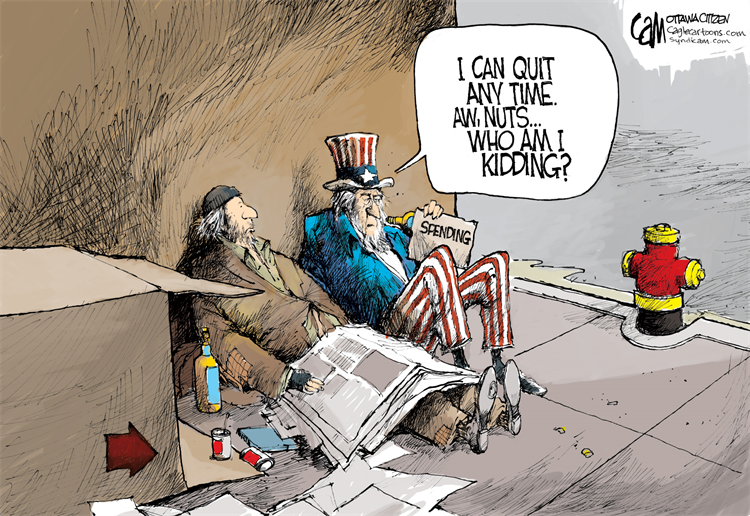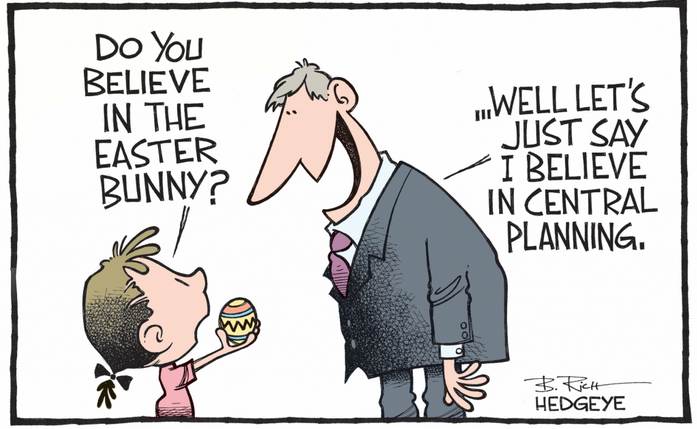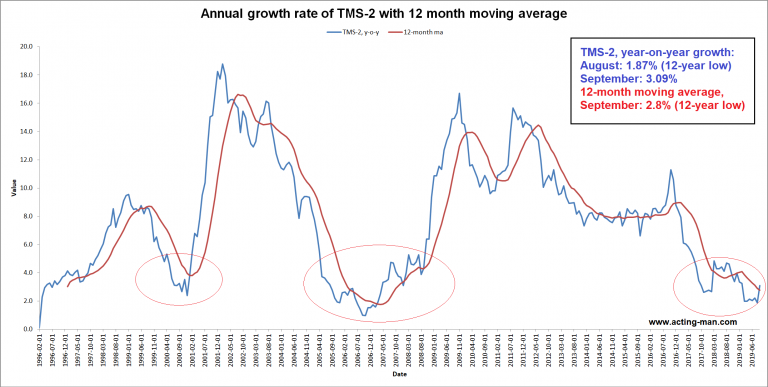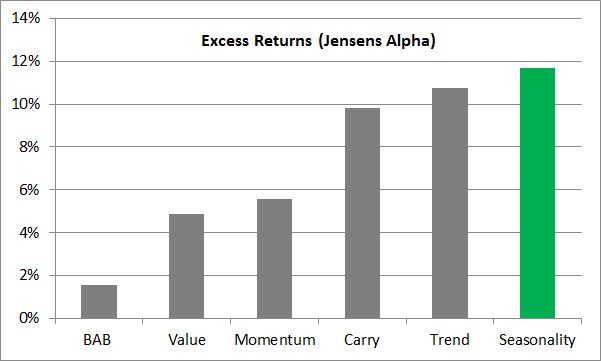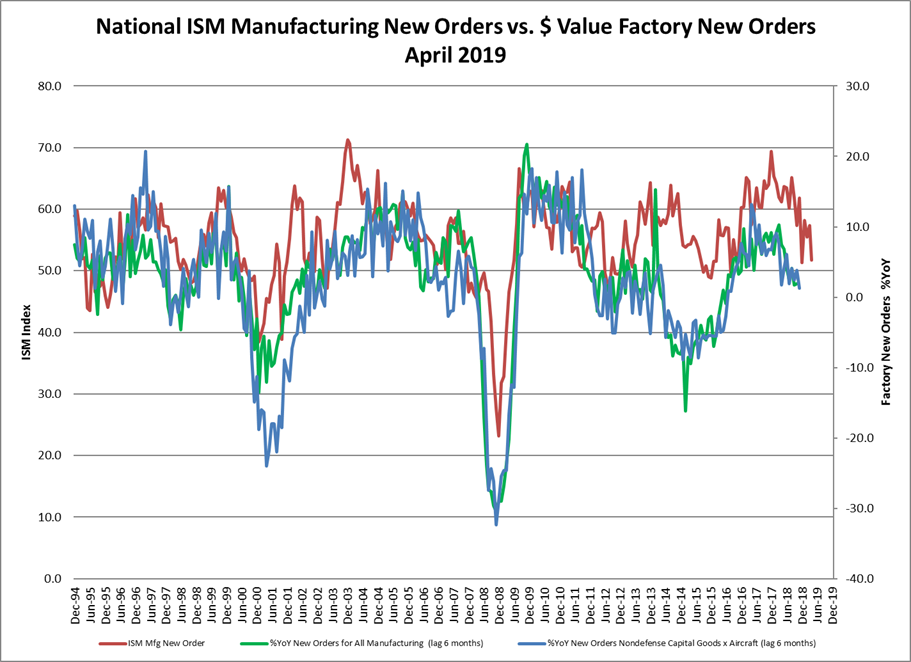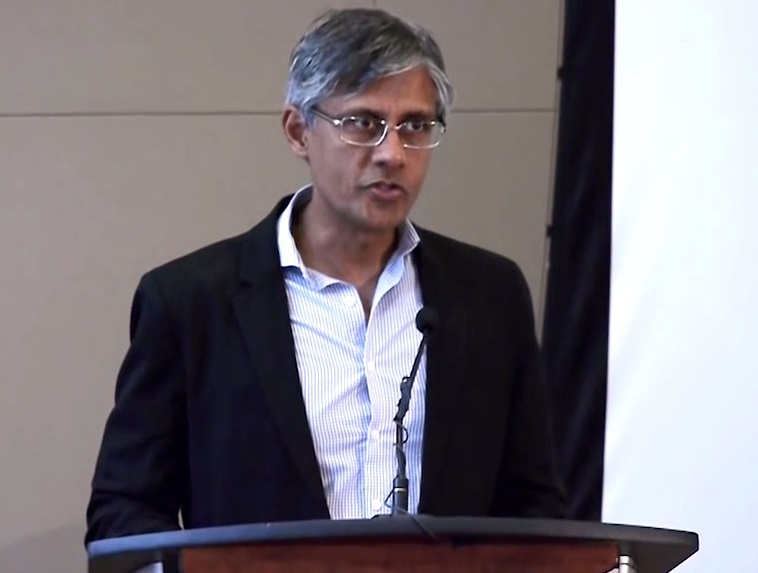The Oppressed U.S. Taxpayer
This year, Americans’ day of tribute to their federal overlords falls on April 18. As calculated by the Tax Foundation, the average American will work from January 1 to April 24 (Tax Freedom Day) to pay his share of taxes to all levels of government with some $3.3 trillion to be forked over to the federal government and $1.6 trillion to state and local jurisdictions. [1]
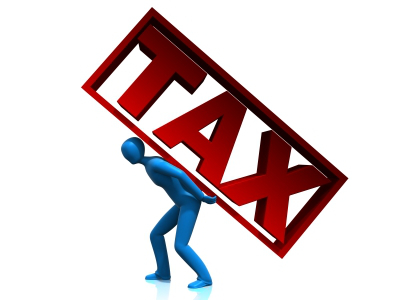
The Oppressed U.S. Taxpayer This year, Americans’ day of tribute to their federal overlords falls on April 18. As calculated by the Tax Foundation, the average American will work from January 1 to April 24 (Tax Freedom Day) to pay his share of tax... - Click to enlarge
While any talk of tax cuts are verboten on the Democratic side of the presidential campaign, the remaining Republican contenders have offered their views on the matter suggesting a flat tax, reduction in corporate tax rates, and a call for the consolidation of the current tax bracket from seven to four. [2]
Most of these and their variations have been trumpeted before and even if enacted would not permanently undo the crushing tax burden or prevent rates from escalating to even more confiscatory heights.
If real and lasting tax relief is ever going to come, a more fundamental alteration of tax policy needs to be taken, which has not been suggested by any of the presidential contenders, but had once been an integral part of the nation’s political thought.
One of America’s most neglected political theorists of the 19th century was South Carolina statesman John C. Calhoun, who wrote the important treatise, A Disquisition on Government. Calhoun perceptively saw that politically, society is divided between two distinct groups: taxpayers and tax consumers.
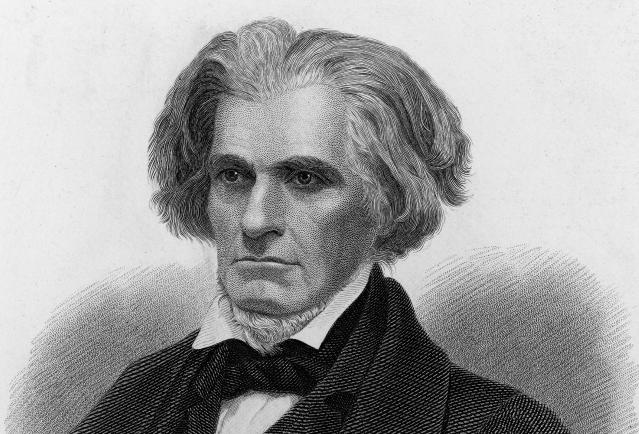
The Oppressed U.S. Taxpayer This year, Americans’ day of tribute to their federal overlords falls on April 18. As calculated by the Tax Foundation, the average American will work from January 1 to April 24 (Tax Freedom Day) to pay his share of tax... - Click to enlarge
Obviously, taxpayers are the ones who “pay” taxes while tax consumers, such as government employees, welfare recipients, state contractors, and all others that receive income from the public trough, “consume” or live off taxation.
Naturally, when it comes to the issue of taxation, tax consumers will be in favor, or, at least, want to maintain the status quo and, more than likely, would support notions of tax increases. Taxpayers, on the other hand, would oppose increases or enlargement of the tax base, since they are the ones “footing the bill.”
Of course, politicians of all stripes and colors try to blur this distinction that Calhoun so brilliantly made, especially on tax day by declaring how “they paid their taxes.” This, however, is sophistry. In reality, politicians are just returning some of the loot that they coercively took from their fellow citizens.
Federal government employees in essence do not pay federal taxes! Nor do individual state employees pay state taxes. This is merely an accounting gimmick to bamboozle the public. And, this is one of the reasons that, for the longest time (and wisely so), citizens of the District of Columbia could not vote in federal elections since most of them were government employees and would, in their self interest, oppose tax cuts or public spending reductions.
Too Many Dependents
When government was limited and the welfare state affected only a small group, voting and levels of taxation did not have a significant correlation. However, with the number of people working for the government in the millions and those dependent on state largesse in the tens of millions, who votes, and in what numbers is extremely important.
It has been recently estimated that of the total U.S. adult population of some 260 million, only one third (some 79 million) can be said not to be dependent on state support for their existence while 70% of the adult population or 57% of the total population is dependent on some form of state aid. And, unfortunately, all indicators point to more and more headed for the dependency category, primarily due to the destructive economic policies of the Obama Administration.
All of those who seek to lower the oppressive levels of taxation not only in America but throughout the Western world are foolish if they allow those who parasitically live off others to have a voice in choosing candidates or initiatives in regard to taxation. Democracy does not trump human nature. State dependents will vote for those they perceive will continue their subsidies.
Instead of lobbying for the redress of phony grievances against Politically Correct victims and groups, social justice warriors should direct their energies to the long suffering U.S. taxpayers and demand that those who live off them should have no say in either how much taxpayers are to pay or how their confiscated wealth is to be dispersed.
References:
[1] ”No Emancipation This Year.” The Washington Times. Friday, April 15, 2016, B2.
[2] Ibid.
Antonius Aquinas is an author, lecturer, and a senior editor at “Wide Awake News.”
Full story here Are you the author? Previous post See more for Next post
Tags: newslettersent,On Economy

























